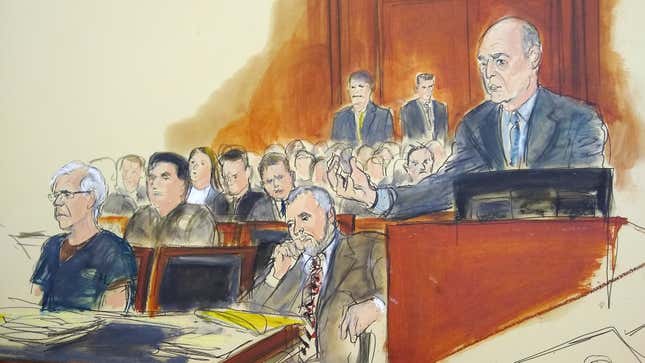Florida Prosecutor Who Put Jeffrey Epstein in Jail Wanted More Time But Says She Was Sabotaged
Latest

In 2008, in a courthouse in Palm Beach, Florida, Jeffrey Epstein pled guilty to two counts of sexual solicitation and was sentenced to 18 months in prison. Epstein, who would later be accused of sexually assaulting dozens of underage girls, had been under federal investigation for years on suspicions he had been bringing girls into his home to massage him and perform sex acts. The woman leading the investigation was federal prosecutor Anna Marie Villafaña; after the sentence was handed down, she reportedly wrote to a colleague, “After all the hell they put me through, I don’t feel like celebrating 18 months. He should be spending 18 years in jail.”
According to the Miami Herald, this statement was part of a 350-page report issued after the Justice Department inquired into whether or not there was misconduct on the part of Alex Acosta, the U.S Attorney at the time who was also Villafaña’s superior on the case.
-

-

-

-

-

-

-

-

-

-

-

-

-

-

-

-

-

-

-

-

-

-

-

-

-

-

-

-

-

-

-

-

-

-

-

-

-

-

-

-








































